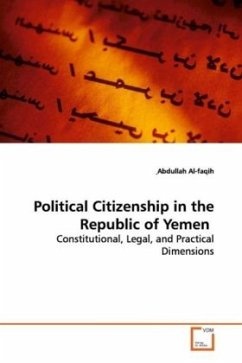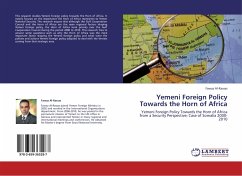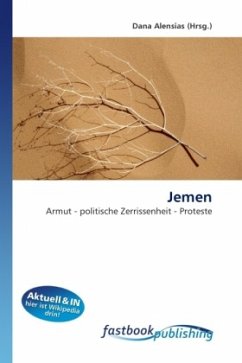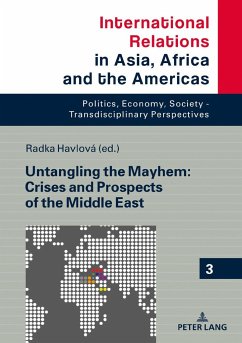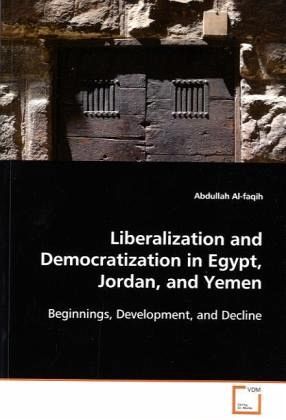
Liberalization and Democratization in Egypt, Jordan,and Yemen
Beginnings, Development, and Decline
Versandkostenfrei!
Versandfertig in 6-10 Tagen
52,99 €
inkl. MwSt.

PAYBACK Punkte
26 °P sammeln!
This study analyzes liberalization and democratization in Egypt, Jordan, and Yemen. The initiation and the reverse of these processes are explained by focusing on the role of the ruling elites in the three countries and the choices they made at different historical junctures. The move towards either liberalization or democratization, this book found, occurred in a context in which the ruling elites perceived these processes as a means to buttress their domestic, regional, and international acceptance and legitimacy. However, the initiation of these processes in the three cases led to the proli...
This study analyzes liberalization and democratization in Egypt, Jordan, and Yemen. The initiation and the reverse of these processes are explained by focusing on the role of the ruling elites in the three countries and the choices they made at different historical junctures. The move towards either liberalization or democratization, this book found, occurred in a context in which the ruling elites perceived these processes as a means to buttress their domestic, regional, and international acceptance and legitimacy. However, the initiation of these processes in the three cases led to the proliferation of political parties, the rise of the Islamists as strong contenders for power, and the expansion of civil society. Seeing these developments as challenges to their authority, the ruling elites gradually reversed these processes. To do so, they relied on a variety of methods, including subtle changes in policy as well as more obvious legal, electoral, and security measures. The bookcan be useful for anyone with interest in Middle Eastern politics, public policy, and political change and stagnation.



